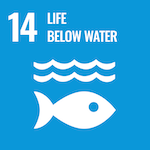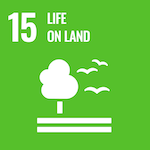DEAL WITH TRASH
- Yulia Strokova

- Dec 10, 2019
- 3 min read
Updated: Jan 5, 2020
How UM’s startup converts trash into donations
A year ago, several students from the University of Miami finished drinking water and couldn’t figure out what to do with the empty plastic bottles. The dorms’ recycling bins were full and looked exactly like the trash cans (no sorting, no recycling).
The problem seemed obvious. “We need to encourage recycling. What if, instead of ending up in the messy bins, landfill or ocean, the plastic bottle could go towards charity donations?” thought Anwar Khan. And voila! The idea to develop Cycle Technology, a mobile application with instant rewards, is born.
It took just two weeks of sharp business acumen and a passion for driving changes to turn the idea into a deck. The University committee endorsed the plan and gave the green light to go forward. Two months later, the UM’s team of six took first place in the Tamid Tank 2019 competition; then they traveled to the University of San Diego to compete at the Fowler Global Social Innovation Challenge. This fall, they won Miami Pitch Night, hosted by the Founders Institute.
"Recycling is broken. When you put a plastic bottle into a recycling bin, nine times out of 10, it won’t be recycled due to the inefficiencies of the current single-stream recycling process," mentioned one of the mentors and judges, Silvio Pupo-Casco, Managing Director of Logos Capital. "The U.S. is one of the largest polluters, and our culture is to blame. An initiative like this at the university is just the kind consciousnesses elevation we need to drive systematic change. And where better to start than in Miami?”
The “cycle” is a mobile application that enables users to interact with RVMs (Reverse Vending Machine), which in turn educate users on the proper disposal of recycled materials. The devices connect wirelessly to a central computing hub that provides real-time data and analytics. And here’s the cherry on top - whenever you bring an empty bottle (or empty beer can) for recycling, the system rewards you! Moreover, you can pledge your green compensation towards the charitable cause of your choice, right from your iPhone.
“Our US growth strategy is principally targeted toward university campuses, and we have already received approval from The University of Miami to launch our pilot program, starting in January 2020,” said Colin Hively.

Plastic Iceberg
Globally, we buy 54.9 million plastic bottles every hour. If all these empty bottles were collected into a pile, it would be higher than the Burj Khalifa in Dubai (and happens to be the world’s tallest building). When plastic was invented in 1907, the world must’ve lacked the foresight to imagine how these highly malleable materials would turn out highly toxic for the environmental: roughly 90% of drinking bottles are never recycled in the United States; and so, their life continues off our shores and in our oceans.

Scientists estimate 8 million tons of plastic enter the oceans every year, choking wildlife while they degrade for the next 500 years.
Although global minds are working hard on solving the plastics issue, the responsibility to address isn’t up for manufacturers to solve, it is up to us, as individuals. Ultimately, our consumerist mentality towards “easy to use” is also resulting in “easy to abuse.” Against popular belief, plastic wouldn’t be as big a problem, if everyone assumed the global duty of recycling.










Comments